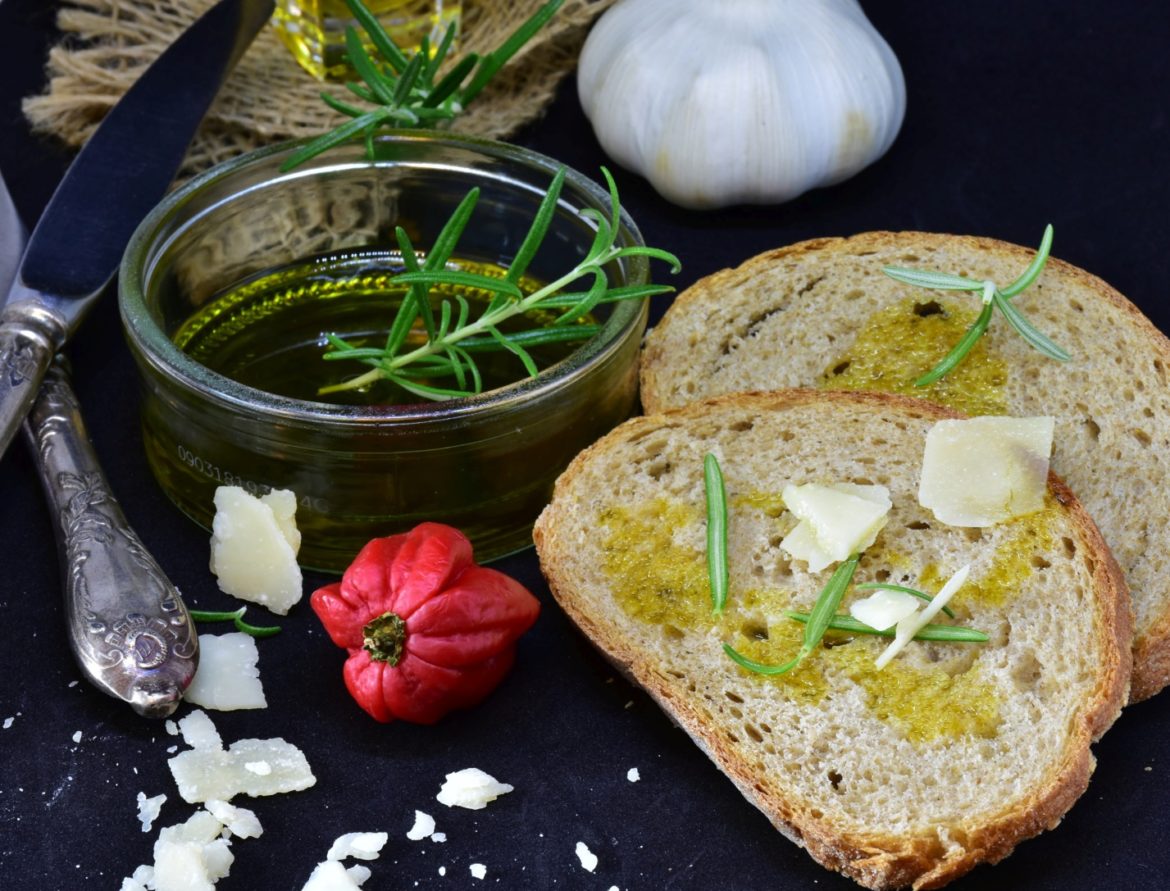Best Cooking Oils For Your Heart Health
When choosing a cooking oil to purchase, several things need to be considered. These include its taste, smoke point and the purpose behind using the oil.
Surprisingly, before purchasing oil, people do not consider how beneficial the oil is for the heart. However, keep in mind, this factor should be given the utmost importance when choosing a cooking oil for you and your family.
Here is a guide which will help you find the best oils according to your needs and also those that support heart health.

How to Pick A Oil That is Heart-Healthy?
All kinds of fats, regardless of whether they come from vegetables, seeds, nuts, milks, meats or avocadoes, contain a mixture of different fatty acids. These fatty acids are basically the building blocks of fat.
However, the fatty acids found in butter, coconut oil, lard and palm oil are mostly saturated. On the other hand, most plant-based oil predominantly consists of unsaturated fatty acids; usually including monounsaturated or polyunsaturated fatty acids.
The federal Dietary Guidelines for Americans recommends opting for the latter. This advice is based on a large body of evidence which indicates that consuming liquid fat (mostly unsaturated fat) and excluding solid fat (mainly saturated fat) from your diet is directly linked to a reduced risk of a heart attack or death from heart disease.
However, if you’ve suddenly started believing that those liquid fats that are derived from plant-based sources are always better, then the answer is a simple no. When it comes to all the cooking oils that are available for consumption, things aren’t always as simple. Besides, if there was one oil that was unmistakably better, then the rest of the oils would have left the aisles a long time ago.
The Different Types of Fats
Before delving into the different types of oil that are available, it is important to understand the different types of fats that makeup these oils. By learning about both good and bad fats, you can understand which oils will provide you health benefits. Hence, allowing you to make a better choice about what oil to include in your diet and which ones to steer away from.
· Unhealthy Fats
Following are the two main kinds of fats that are unhealthy for your heart, as well as your overall health. Hence, they should be consumed as little as possible.
· Saturated Fats
These are the fats that you should keep to the minimum in your diet. According to the recommendations by nutritionists, less than 7% of your daily intake of fat should come from saturated fats. Hence, the fewer you consume of these, the better it is for your heart and overall health. In order to ensure that you aren’t consuming too many saturated fats, limit your intake of whole milk, cheese, butter and yogurt, bacon fat, lard, fatty cuts of meat and the skin of poultry, as well as coconut oil and palm oil.
· Trans Fats
Trans fats should be completely removed from your diet, irrespective of whether you are at a risk of heart disease or not. These aren’t good for you, and only do damage to your body. You can stay away from trans fats by avoiding any foods that contain partially hydrogenated oils. Since many packaged and processed foods contain these oil, always scan the ingredient label before consuming anything.
· Healthy Fats
Following are the types of fat that should be included in your diet, as they offer various health benefits.
· Monounsaturated Fats
These are the fats that are good for your health and lowers your LDL (bad) cholesterol level. Since cholesterol can clog, or even block your arteries (blood vessels), maintaining a low level of LDL helps reduce your risk of heart disease and stroke. Olive oil, avocado oil, and various nut oils are excellent sources of monounsaturated fats.
· Polyunsaturated Fats
If saturated and trans fats are replaced with polyunsaturated fats in your diet, it can significantly boost your cardiovascular health. Similar to monounsaturated fats, they help lower the levels of LDL, lowering your risk of heart disease and stroke as well. Additionally, oils that are rich in polyunsaturated fats usually contain a significant amount of vitamin E as well, an antioxidant that most people tend to be deficient in due to its lack in our modern diets. These oils are also a rich source of omega-3 and omega-6 fatty acids. These are essential fats that your body requires to function but can’t produce on itself.

What are the Healthiest Oils to Cook with?
When it comes to cooking oils, there are no right or wrong answers. In fact, every kitchen should have at least two or three types of cooking oils to ensure they have something for every need. In fact, if you spend some time cooking, then you may already have more than one oil in your pantry (canola oil, olive oil, coconut oil, etc., being the most commonly used ones).
However, to ensure that you are getting the benefits of these fats without adding a lot of saturated fats or any trans fat to your diet, you need to ensure that you are getting the right kinds of oils for your needs.
· Olive Oil
Olive oil is arguably the best oil for your heart health, and should be consumed as often as possible. The extra virgin olive oil is the best kind that you can find, as it is unrefined and the purest kind of olive oil. However, since extra virgin olive oil has a low smoke point, it isn’t suitable to cook with it. You can drizzle it over bread, pasta and hummus, make salad dressing with it, etc. If you intend to cook with olive oil, opt for pomace or light olive oil. They are slightly less nutritious than the extra virgin kind but can stand higher temperatures of heat without going rancid.
· Avocado Oil
Just like the fruit, avocado oil might be the next big trend in the world of diet and health. Just like extra virgin olive oil, it is an unrefined oil. However, it has a high smoke point which makes it suitable for cooking at high heat. It has a neutral flavor, which means that it doesn’t overpower the taste of the dish that is cooked in it. Avocado oil contains one of the highest amounts of monounsaturated fats contents compared to most other oils, while also containing significant amounts of polyunsaturated fatty acids and vitamin E. Since it is an unrefined oil with a high smoke point, it can be used any way you want. Salad dressings, drizzle over bread, roasting, stir frying, sautéing, everything works with avocado oil. Perhaps the only downside of this oil is that it is significantly more expensive than other oils.
· Coconut Oil
We know that we’ve previously said that you should limit your intake of coconut oil. However, that doesn’t mean that you have to give up on it altogether. In fact, if taken in moderation, then coconut oil can be very beneficial for your health. Although coconut oil is mostly saturated fat, it is one of the very few known examples of saturated fats that aren’t bad. Coconut oil is medium-chain triglycerides, which allows it to be absorbed by the body much more easily. It can be used as a healthy shot of instant energy by adding it to bullet-proof coffee or drizzling it over salads. Our bodies require some amount of saturated fats to function properly, and coconut oil is one of the healthier sources of it. Since coconut oil has a very high smoke point, it can be used for all types of cooking, including frying. As long as you remember to practice moderation, coconut oil can be a healthy addition to your diet.
· Canola Oil
One of the oils that have been debated heavily in the past few years has been canola oil. People have come to believe that canola oil is not healthy for regular consumption. However, there is little truth to it. Derived from a flowering plant known as rapeseed, canola oil contains a significant amount of monounsaturated fats and a reasonable amount of polyunsaturated. It is also low in saturated fats; it has the lowest amount compared to most other vegetable oils. In addition to that, it has a high smoke point and a neutral taste, which allows it to be used in most kinds of cooking. However, canola oil should not be consumed raw unless it is cold-pressed or unprocessed. Since those kinds of canola oils are very difficult to find in the USA, it is better to use them just for cooking.
· Flaxseed Oil
Aside from being one of the healthiest sources of fat out there, flaxseed oil is also high in omega-3 fatty acids. Since it is hard to get enough of this nutrient in the average diet without adding supplements, flaxseed oil is arguably the best natural supplement for it (unless you regularly consume seafood). Since flaxseed oil has a low smoking point, it should never be used for cooking purposes. In fact, it is recommended to store in a low-temperature location to prevent it from going bad, like in the fridge. Flaxseed is the only oil on this list that should not be heated under any conditions, since heat can make it go bad instantly. However, its nutty flavor compliments salads, bread and pancakes very well.
· Peanut Oil
If you are particularly experimental when it comes to cooking oils, then nut oils can be a fun territory to explore. Peanut oil contains one of the highest amounts of monounsaturated fats contents among cooking oils. It has a high smoke point, which allows it to cook well at high heat. The nutty flavor of this oil can be a great base for stir fries if you want to add an extra zest to your dishes.
· Walnut Oil
Another nut oil you should be playing around with is walnut oil. Walnut oil can help keep inflammation in check, as it has a good ratio of omega-6 to omega-3 fatty acids. However, unlike peanut oil, this one has a low smoke point. But there are various other ways in which you can add it to your food. Drizzle the oil over pancakes, pastas, soups, even fruits and ice cream. This is arguably the only oil that actually goes well with desserts as well. It can also be added to frothed milks while making coffee.
No matter what oils you choose to include in your diet, it is always important to practice moderation. Too much oil can make you exceed your daily requirement of calories, which can then lead to obesity. On a general basis, about 20-30% of a person’s calorie intake should come from fats to balance the macronutrients of the body.
It is also important to ensure that you are mindful of how long you’re storing your oils. Don’t stock up your kitchens, as natural oils may start to lose their nutritional value over time. They won’t become poisonous and will still be safe for consumption. But they won’t provide the same benefits that it would in the beginning.
Just adding these oils to your diet wouldn’t help if your heart condition if you don’t change other aspects of your life as well. In order to ensure a healthy lifestyle that is good for your heart, you will have to change other aspects of your lie as well.
Switching saturated and trans fats with monounsaturated and polyunsaturated fats but adding these oils to your diet is one aspect of the changes you can make to improve the quality of your health and lifestyle.


